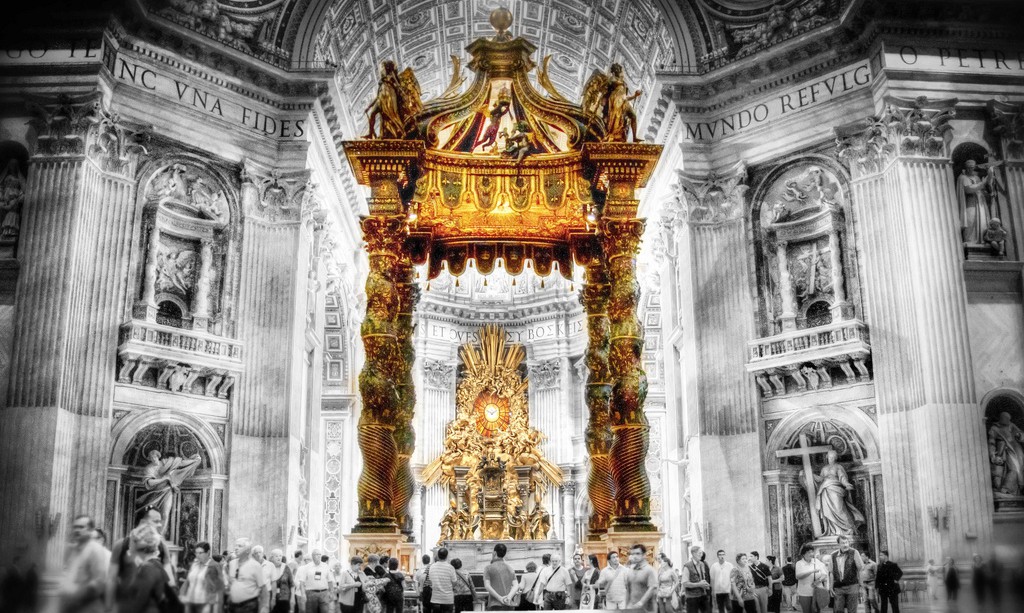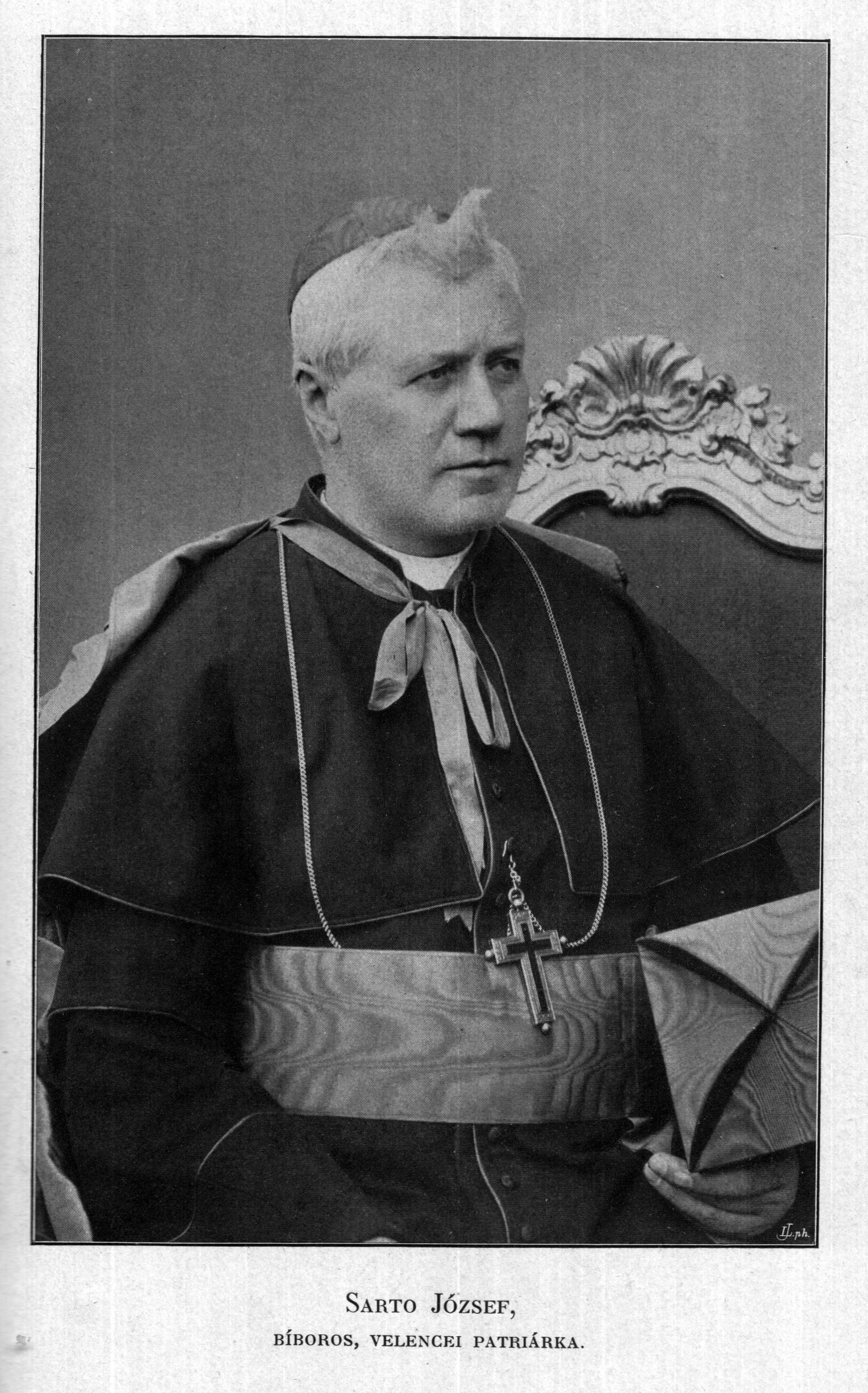
https://fsspx.news/en/news-events/news/celebration-pope-st-pius-x-his-feast-september-3-31854
Today more than ever, the Church finds in St. Pius X, pope from 1903 to 1914, a true saint of the papacy, a model, and a guide
- His concern about the sanctity of the clergy, the key to renewing all things in Christ, according to his sublime motto.1
- The renewal of ecclesiastical studies. Pius X exhorts Christian philosophers to defend the truth under the banner of St. Thomas Aquinas. He founds in Rome the Pontifical Biblical Institute, and encourages the theological sciences, inspired exegesis and carefully prepared preaching on the part of the clergy.
- His preoccupation with the eternal salvation of souls. If Pius X desired a holy clergy, it was with a view to the instruction of the faithful, to whom he gave a catechism designed for both adults and children. To the latter he would forever remain the Pope of the Eucharist, promoting Communion at an early age, but also—and for everyone—frequent and even daily Communion.
- The defense of the Faith in its fullness and purity. The false teachings that recycled a compendium of errors were unmasked, labeled as Modernism, and wisely repressed (Encyclical Pascendi, September 8, 1907). In these circumstances, as well as in his battle against anticlerical laws and the secularist separation of Church and State, St. Pius X was, in the words of the Angelic Pastor, an “infallible teacher of the Faith”, the “fearless avenger of religion” and the “guardian of the Church’s liberty”.
- His love of the liturgy. The initiator of an authentic liturgical movement, Pius X renewed sacred music, but also the breviary and the calendar of feast days, so as to orient the Church decisively “toward a liturgical life that is thoroughly imbued with traditional piety, sacramental grace and inspired beauty”2.
These are chief traits of the sanctity of Pius X, the sanctity of a reign that was thoroughly imbued with the grandeurs and the supernatural riches that are the Church’s treasure. Pius XII likewise recalls the work of reform that he accomplished in the Roman Curia, in the schools and the parishes, the formidable work of compiling the hitherto scattered laws of the Church into one corpus adapted to the conditions of society (the Code of Canon Law, promulgated in 1917). Not to forget the attention that he paid to evangelization in the missions and also his appeals to the “separated Oriental Christians” for unity.
Pius XII canonized this pontifical sanctity for a very precise purpose: in order to “dispose minds to confront our own struggles and to assure our victories and those of the generations to come”.3 Now that he is proclaimed a “saint and guide of men today”, “the apostle of the interior life”, St. Pius X is held up as a “providential example for the modern world where earthly society, which has increasingly become a sort of enigma to itself, anxiously seeks a solution so as to reacquire a soul! May it therefore look for a model to the Church gathered about her altars.”4 For this pope “inspired everywhere an immense movement of return to the splendors of the sacred liturgy and of sacred music, and banished ugliness from God’s holy temple.”5
More than ever today, as she did 60 years ago, the Church finds in St. Pius X, a true saint of the papacy, a model and a guide.
For the clergy, so that they might rediscover the meaning of their eminent dignity and of their vocation to be first and foremost men of God, devoted to the worship and praise of Him. The sacrosanct rituals of the liturgy constitute in the first place public worship offered to the Divine Majesty, the same act of sacrifice offered by the one Savior of mankind. This is not about organizing a more or less Protestantized Last Supper, without grandeur or clearly defined priesthood. It is about restoring to each priest his own identity: the fact that he is another Christ, mediator between God and men, charged with pardoning sins, distributing divine blessings to souls and leading them to Heaven.
For the faithful and the Christian people as a whole, so that they might understand the burning necessity of saving their souls, of sanctifying their home, their work and their city. Wisely instructed by their holy religion, may they know how to keep themselves from the corruption of the world, especially from moral and intellectual corruption. St. Pius X wanted the people to pray with the help of beauty and to “recognize in the Eucharist the power to feed their interior life substantially”.6 On a sound basis he organized Catholic Action and promoted the social and professional activities of Catholics within a denominational framework.
For the peoples of the world and for all men of good will, so that they might find in the Church access to Jesus Christ. This was his primary concern, Pius XII again explains, for God “is the origin and the foundation of all order, of all justice, of all law in the world. Where God is, there order, justice and law reign.” Hence the great construction project during the pontificate of St. Pius X to organize the law of the Church. Hence also the primacy of faith and of sound doctrine which was “a service of the utmost charity, rendered by a saint, as head of the Church, to all humanity”.7
For the enemies of the Church, finally, so that they might know the fearlessness and the strength that God alone can give to his Vicar on earth and, though him, to his children spread throughout the world. Symbolic of this was the courage with which Pius X rejected the laws separating Church and State; he “gave new bishops to cruelly persecuted France, and resists the attacks of the wicked”.8







